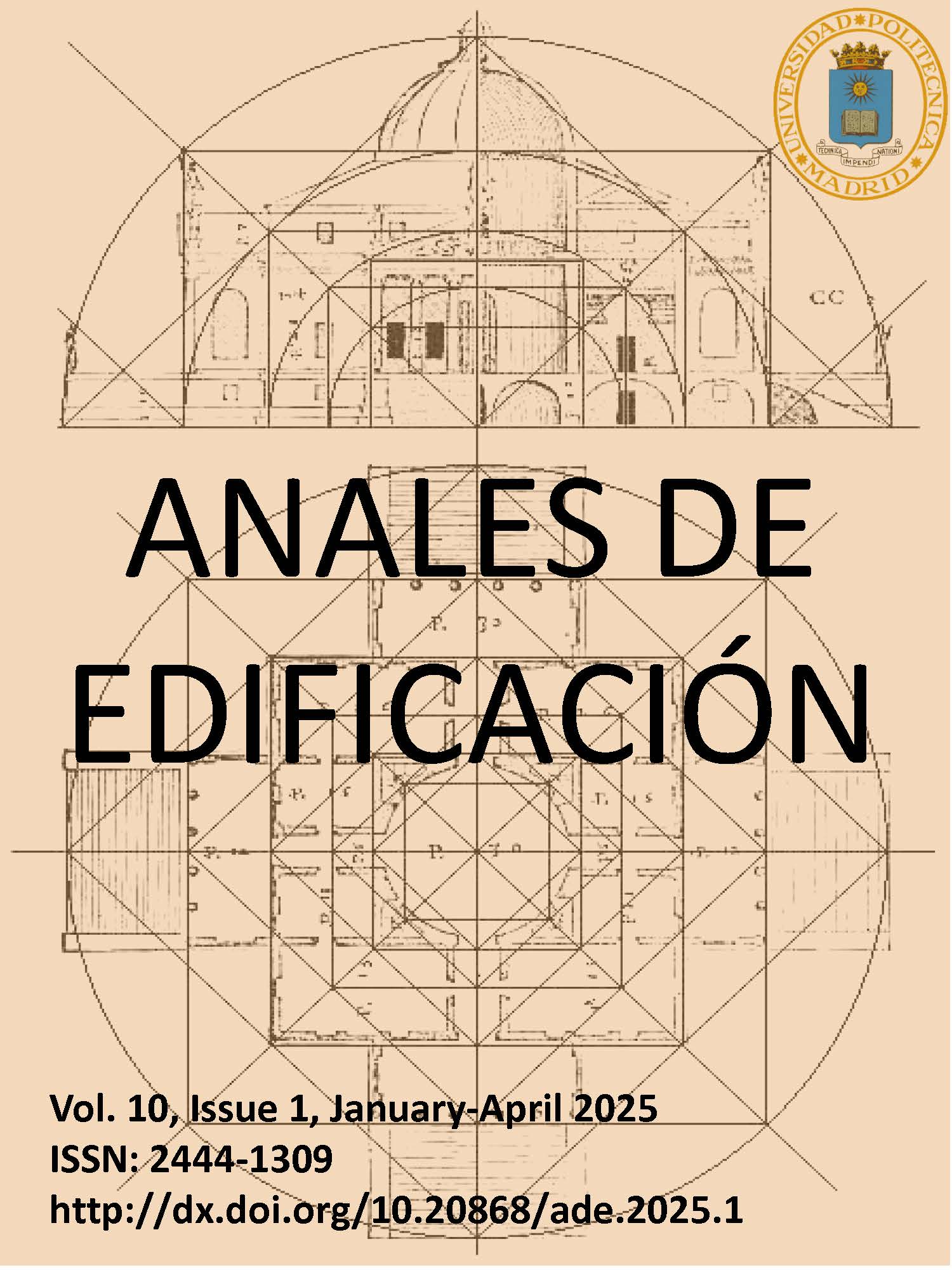Diagnóstico de sostenibilidad del rendimiento de centros educativos y desarrollo de herramientas para aumentar las competencias de la comunidad educativa.
DOI:
https://doi.org/10.20868/ade.2025.5383Resumen
El Proyecto ECF4CLIM co-diseña, prueba y valida un marco de competencias europeo para que la comunidad educativa impulse la transición hacia una economía sostenible y baja en carbono, involucrando a centros educativos de diferentes países europeos. En este contexto se analiza el comportamiento energético y medioambiental de cada centro. Este diagnóstico se está llevando a cabo a través de auditorías y herramientas de análisis. Las auditorías se basan en la recopilación de documentación relevante, y en la realización de visitas y encuestas en los diferentes centros educativos, caracterizando la construcción de los edificios, el consumo de energía y agua y otros parámetros ambientales. Las herramientas informáticas permiten calcular la huella ambiental, identificar las estrategias de rehabilitación adaptadas a las condiciones climáticas y evaluar las intervenciones de sostenibilidad. La aplicación combinada de ambas herramientas proporciona las pautas más adecuadas a implantar en cada centro para optimizar su comportamiento
Descargas
Referencias
1. Banco Mundial. https://datos.bancomundial.org/indicador/SP.POP.TOTL (accedido el 17/03/2023).
2. ClimACT project. Transition to a low carbon economy in schools. https:// http://www.climact.net/ (accedido el 17/03/2023).
3. Código Técnico de la Edificación (CTE) Documento Básico de Ahorro de Energía (DB-HE). https://www.codigotecnico.org/DocumentosCTE/DocumentosCTE.html (accedido el 17/03/2023).
4. Digital Platform. ECF4CLIM-A European competence framework for a low carbon economy and sustainability through education: https://ecf4clim.smartwatt.net/simulators-space/simulators-space.html#environmental (accedido el 17/03/2023).
5. ECF4CLIM-A European competence framework for a low carbon economy and sustainability through education. https://www.ecf4clim.net/ (accedido el 17/03/2023).
6. EnergyPlus™. Computer software. Version 00. September 30, 2017. https://www.osti.gov//servlets/purl/1395882 (accedido el 17/03/2023).
7. European Commission - Joint Research Centre. 2011. International Reference Life Cycle Data System (ILCD) Handbook Recommendations for Life Cycle Impact Assessment in the European context. First edition November 2011. EUR 24571 EN. Luxemburg. Publications Office of the European Union; 2011.
8. European Environment Agency (2021). Total greenhouse gas emission trends and projections in Europe. https://www.eea.europa.eu/ims/total-greenhouse-gas-emission-trends (accedido el 17/03/2023).
9. Eurostat - high-quality statistics and data on Europe https://ec.europa.eu/eurostat/statistics-explained/index.php (accedido el 17/03/2023).
10. IPCC, 2022: Climate Change 2022: Impacts, Adaptation, and Vulnerability. Contribution of Working Group II to the Sixth Assessment Report of the Intergovernmental Panel on Climate Change [H.-O. Pörtner, D.C. Roberts, M. Tignor, E.S. Poloczanska, K. Mintenbeck, A. Alegría, M. Craig, S. Langsdorf, S. Löschke, V. Möller, A. Okem, B. Rama (eds.)]. Cambridge University Press. Cambridge University Press, Cambridge, UK and New York, NY, USA, 3056 pp., doi:10.1017/9781009325844. [Gamarra A. et al. (2021) Low-Carbon Economy in Schools: Environmental Footprint and Associated Externalities of Five Schools in Southwestern Europe. Energies 14(19), 6238.
11. A.R. Gamarra, I.R. Istrate, I. Herrera, C. Lago, J. Lizana, Y. Lechón. Energy and water consumption and carbon footprint of school buildings in hot climate conditions. Results from life cycle assessment, Journal of Cleaner Production, Vol. 195, (2018) 1326-1337, ISSN 0959-6526, https://doi.org/10.1016/j.jclepro.2018.05.153
12. A.R. Gamarra, I. Herrera, Y. Lechón, Assessing sustainability performance in the educational sector. A high school case study, STOTEN, Vol. 692 (2019) Pag.465-478, ISSN 0048-9697, https://doi.org/10.1016/j.scitotenv.2019.07.264
13. Lizana J. et al. (2021) A methodology to empower citizens towards a low-carbon economy. The potential of schools and sustainability indicators Development of integrated demand and supply side management. J. Environ. Manage. 284, 112043.
Descargas
Publicado
Número
Sección
Licencia
Derechos de autor 2025 Autor / BY-NC

Esta obra está bajo una licencia internacional Creative Commons Atribución-NoComercial-SinDerivadas 4.0.
1. Los autores conservan los derechos de autor y garantizan a la revista el derecho de una Licencia Creative Commons Atribución - Nocomercial 4.0 Internacional que permite a otros compartir el trabajo con un reconocimiento de la autoría y uso no comercial.
2. Los autores pueden establecer por separado acuerdos adicionales para la distribución no exclusiva de la versión de la obra publicada en la revista (por ejemplo, situarlo en un repositorio institucional o publicarlo en un libro).
Salvo indicación contraria, todos los contenidos de la edición electrónica se distribuyen bajo una licencia de uso y distribución “Creative Commons"












